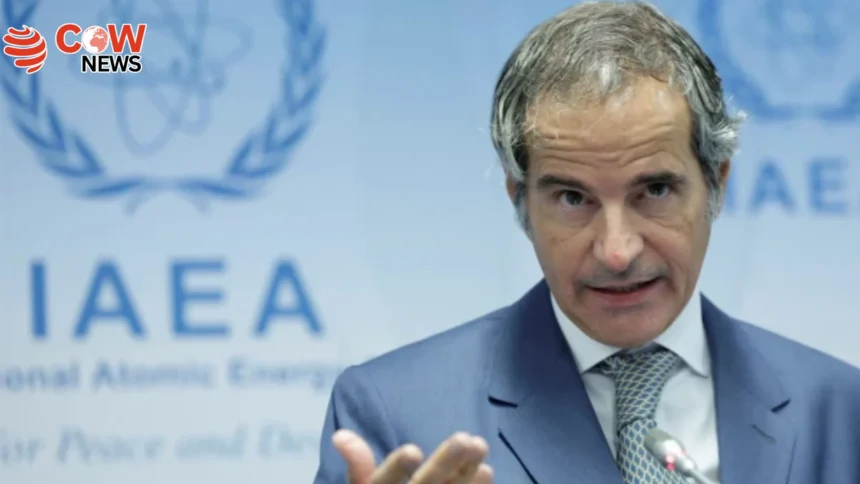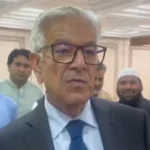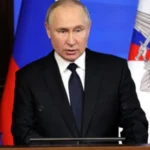Tehran (The COW News Digital )In a major development that undercuts the narrative promoted by the United States and Israel, the head of the International Atomic Energy Agency (IAEA), Rafael Grossi, has publicly stated that there is no evidence Iran was building nuclear weapons.
The statement comes just days after U.S. National Intelligence Director Tulsi Gabbard also confirmed that intelligence assessments do not support the claim that Iran is pursuing a nuclear weapons program. Both declarations directly challenge the justification used by Washington and Tel Aviv to escalate tensions with Tehran.
Speaking to international media, Grossi said, “Based on all our inspections and monitoring so far, there is no indication that Iran is actively developing nuclear weapons. There is no integrated program to that effect anywhere in the country.”
Grossi clarified that while Iran had enriched uranium up to 60%, a level far below the 90% required for weaponization, the IAEA never concluded that these efforts were intended for weapons production. “Suspicions do not amount to evidence,” he noted.
These remarks are being seen as a significant blow to the war narrative pushed by Israeli and American leadership. President Donald Trump, despite intelligence briefings to the contrary, had repeatedly insisted that Iran was on the brink of developing a nuclear bomb, using this claim to justify potential military actions.
In contrast, Gabbard, speaking in March 2025, stated: “According to our intelligence sources, Supreme Leader Ayatollah Khamenei has never authorized a nuclear weapons program.”
This latest IAEA assessment raises serious questions about the legitimacy of recent military actions and political pressure campaigns targeting Iran. Observers note that the nuclear weapons narrative has been a cornerstone of Western policy used to justify sanctions, sabotage operations, and now, an emerging regional conflict.
Russia has also weighed in, warning the United States against providing further military support to Israel in its conflict with Iran, arguing that the entire premise of nuclear threat was built on “false intelligence and political motives.”
These developments highlight a growing divide between international agencies and certain state actors over the true nature of Iran’s nuclear ambitions and the legitimacy of responses taken in the name of non-proliferation.







